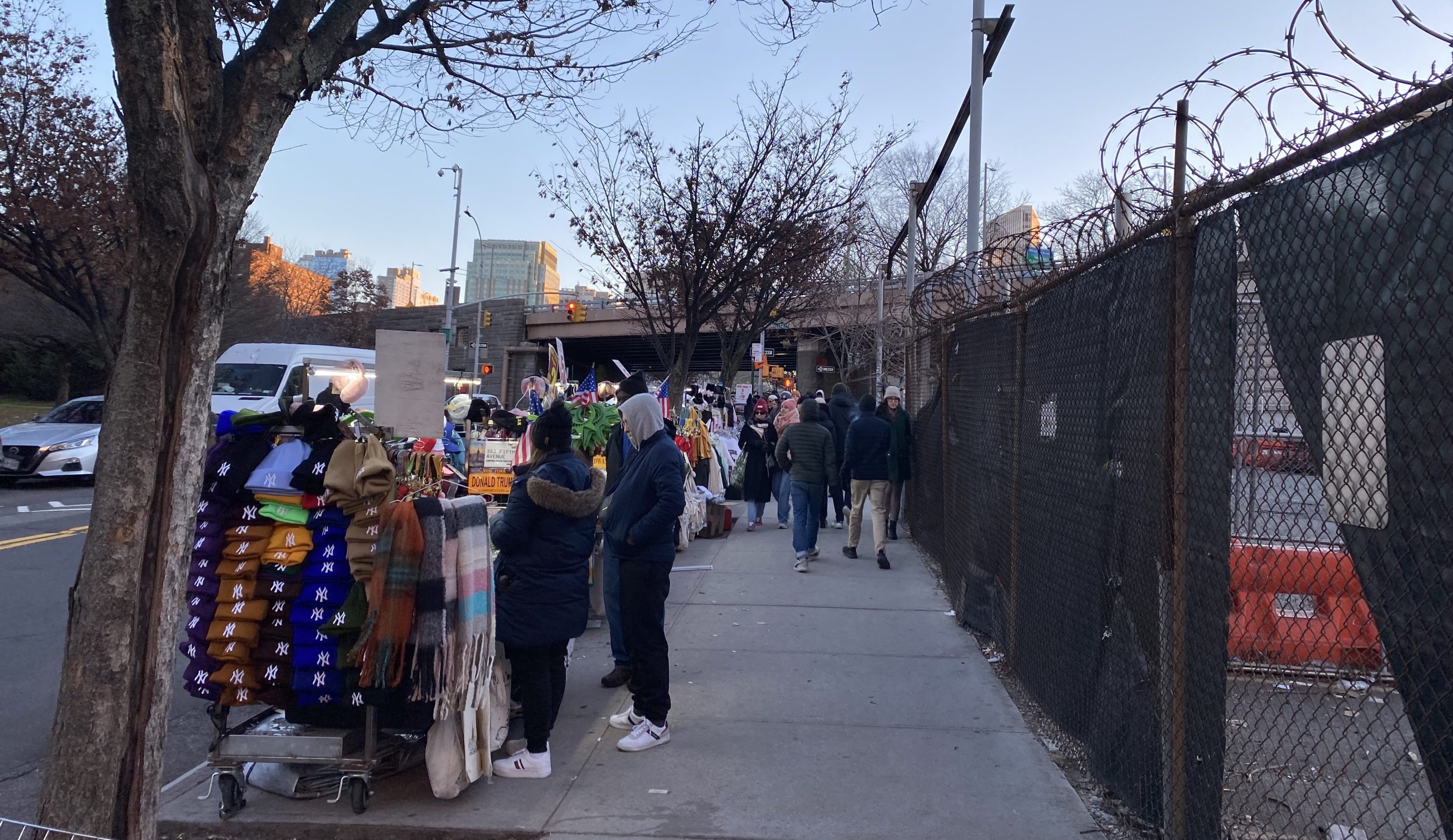Lifting the city’s decades-old cap on street vending licenses could add millions of dollars to municipal tax coffers — but many vendors eager for the permits would have trouble finding a spot to sell their goods due to byzantine regulations, independent city budget wonks found.
Officials could rake in some $17 million by licensing the roughly 20,000 people on waitlists for vending permits, mainly through new tax revenue from shifting outdoor merchants out of the black market and into the formal economy, according to a report by the Independent Budget Office.
The IBO study [PDF], which the City Council requested, found that the new revenues from taxes and fees would outweigh any new costs of administering more licenses, whose numbers the city has restricted since the 1980s.
"We always said that formalizing this industry would benefit everyone," said Mohamed Attia, a former vendor who is now the managing director of the Urban Justice Center's Street Vendor Project.
"[It] will benefit the city, will benefit the vendor community, and of course benefit all New Yorkers who will deal with regulated businesses and regulated workers."
The extra money would be a drop in the city’s overall $110.5 billion annual budget, but ditching the cap would make a major difference for vendors — who would no longer face costly ticketing or confiscation of their wares by law enforcement, or renting permits on the underground market at eye-watering markups.
“Although IBO expects that the broad economic impact of removing vendor permit caps would be modest, the policy could have significant positive effects for individual vendors—particularly those who spend tens of thousands of dollars a year on leasing a permit from a current permit-holder,” the city-funded budget watchdog wrote.
“If vendors in this position could instead secure a city-issued permit for the notably lower cost of the City’s licensing fee, they could increase their annual profits by thousands of dollars.”
The City Council in 2021 passed a law aimed at adding 4,450 food vending permits over a decade, or 445 a year, but the Department of Health and Mental Hygiene has been slow to issue them — even as cops cracked down on outdoor market hotspots on the Brooklyn Bridge, in Sunset Park, and at Corona Plaza.
A December bill by Bronx Council Members Amanda Farías and Pierina Sanchez would scale up the rollout to 1,500 licenses annually and lift the cap entirely by 2029.
The two lawmakers plan to reintroduce the bill into this year's session "in the coming weeks," they said in a joint statement.
"We are heartened at the finding that expanding access to licenses to all vendors would positively impact vendors who would be able to work without fear, while generating millions in new revenues for NYC," they said.
Not everybody in line for the documentation would be able to get into the formal economy immediately, however, because the city heavily limits where people can sell goods.
Vendors are barred from many streets or at certain times, and are not allowed to set up shop too close to building entrances, bus stops, driveways. For example, only one street in the entire borough of the Bronx allows food vending at any time during the week, according to the IBO report.
Food sellers would also have to store and clean their vending units at city-permitted commissaries, which have limited capacity, the office added.
Street vendors make an average annual profit of about $8,000, according to 2019 data, with food vendors earning more than general vendors at $9,000 and $6,800 on average, respectively.
However, the city has kept a lid on how many permits officials give out to the sellers since the Koch administration, which capped the number of licenses after business interest groups gained more influence following the city’s financial crisis in the 1970s, the report said.
Current city regulations limit general vendor licenses for merchandise to 853, regulated by the Department of Consumer and Worker Protection, and mobile food vending licenses to 5,100, overseen by the Health Department. There are about 10,000 people on waitlists for each type of permit.
The artificial shortage has led to a “persistent informal vending economy,” with vendors shelling out upward of $17,000 a year to rent permits on the black market which would normally cost only $200, according to the IBO.
Sellers can also hawk “expressive materials” without a license under the First Amendment, such as books, music, and art, but they still have to pay sales tax abide by the city’s regulations on where they can operate.
If just 10 percent of people on the waitlist for the licenses get permitted, or 2,087 vendors, the city would get $3.14 million in sales and income taxes, fees, and fines, while spending $1.47 million on administrative costs, netting $1.67 million, the IBO calculated. For all roughly 20,000 vendors currently waiting to get a permit, that would come close to $17 million in revenue.
The IBO does not expect the licenses to increase enforcement costs, since the budget experts assumed that the "initial entry" of new licensees are people who are already vending, and who the city's vendor enforcement agencies, the NYPD and the Department of Sanitation, are already monitoring.
A DCWP spokesperson said the agency is reviewing the report. A Health Department rep didn't comment on the report's findings, saying only that there would need to be a law change to add more permits.






